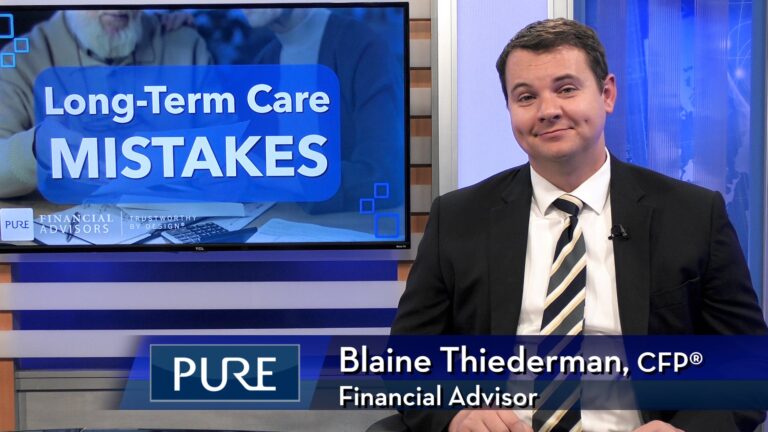The presidential election took place on November 3, 2020. What does this mean for your investment portfolio, and what 2021 tax planning strategies should you implement now? In this financial market update webinar, Pure Financial Advisors’ Executive Vice President and Director of Research, Brian Perry, CFP®, CFA, discusses the 2020 election results, what to expect from the next administration, investment strategies for a post-election world, and financial moves to make now.
Schedule your Free Financial Assessment now, before the end of the year!
– The race to 270
– What about the House?
– 4 Senate seats still undecided as of Nov 9, 2020
– Control has shifted back and forth
Do Elections Matter?
– Stock Market Performance in Election Years
– Annualized Returns During Presidential Terms
– Markets Have Rewarded Investors Under a Variety of Presidents
– Hypothetical Growth of $1 Invested in the S&P 500 Index and Party Control of Congress
Joe Biden’s Tax Plan
– Individual Income Tax Rates
– Qualified Business Income (QBI) Deduction
– Capital Gains
– “Step-Up” in Basis
– Itemized deductions
– The Social Security Earnings Cap
– Real Estate Tax Preferences
– Depreciation of Rental Housing
– Deferral of Capital Gains on 1031 Exchanges
– Tax Deductions for 401(k) Contributions
Tax diversification
Measuring the Market
– The S&P 500
– NASDAQ 100
– iShares MSCI EAFE ETF
– iShares MSCI Emerging Markets ETF
– 10 Year Treasury Bond Yield
– Style Returns: Large, Mid, Small, Value, Blend and Growth as of Nov 9, 2020
– Performance Summary
– Reversion to the Mean
QUESTIONS ANSWERED:
If I sell a small-cap fund at a loss, take the tax write off, then can I turn around and buy a different small-cap fund?
Could these tax rate increases be retroactive this year, 2020?
Do you think step-up basis on stock or primary residence will go away with Joe Biden? My mom is very concerned.
If you make over $200,000 in capital gains as a single person you won’t be taxed at 15%, but at 18.8%? When does that 3.8% surcharge come into play?
If you would do the math, would the money you saved on taxes each year saving to a 401(k) basically equal the amount of taxes you pay taking the money out of the 401(k)?
Can you please go over the backdoor Roth IRA again? I’m retired and have no earned income, just pensions. can I contribute to a Roth?
What’s the annual limit to contribute to a Roth IRA and 401(k)?
If you sell stocks that are in a traditional IRA, can you use long-term capital gains rate for the stocks held over a year?
If most your funds are in the tax-deferred pool, are you suggesting you move funds to both the Roth and taxable pools, versus just to the Roth? If so, what percent of the withdrawal from the tax-deferred pool should go to the other two pools?
Is it best to have somewhat equal amounts or percentages in the tax-free, tax-deferred, and taxable pools of money in your portfolio?
President Donald Trump keeps saying that if Joe Biden wins the market will crash unlike ever before yet the data you show seems to be indifferent to who wins. Which do you think is correct given the current world situation?
Watch our previous webinar:
2020 Tax Strategies: Planning for Retirement | YMYW Tax Planning Webinar
Subscribe to our YouTube channel.
Read Brian Perry’s new book, Ignore the Hype: Financial Strategies Beyond the Media-Driven Mayhem
IMPORTANT DISCLOSURES:
• Investment Advisory and Financial Planning Services are offered through Pure Financial Advisors, LLC. A Registered Investment Advisor.
• Pure Financial Advisors, LLC does not offer tax or legal advice. Consult with a tax advisor or attorney regarding specific situations.
• Opinions expressed are subject to change without notice and are not intended as investment advice or to predict future performance.
• Investing involves risk including the potential loss of principal. No investment strategy can guarantee a profit or protect against loss in periods of declining values.
• All information is believed to be from reliable sources; however, we make no representation as to its completeness or accuracy.
• Intended for educational purposes only and are not intended as individualized advice or a guarantee that you will achieve a desired result. Before implementing any strategies discussed you should consult your tax and financial advisors.










